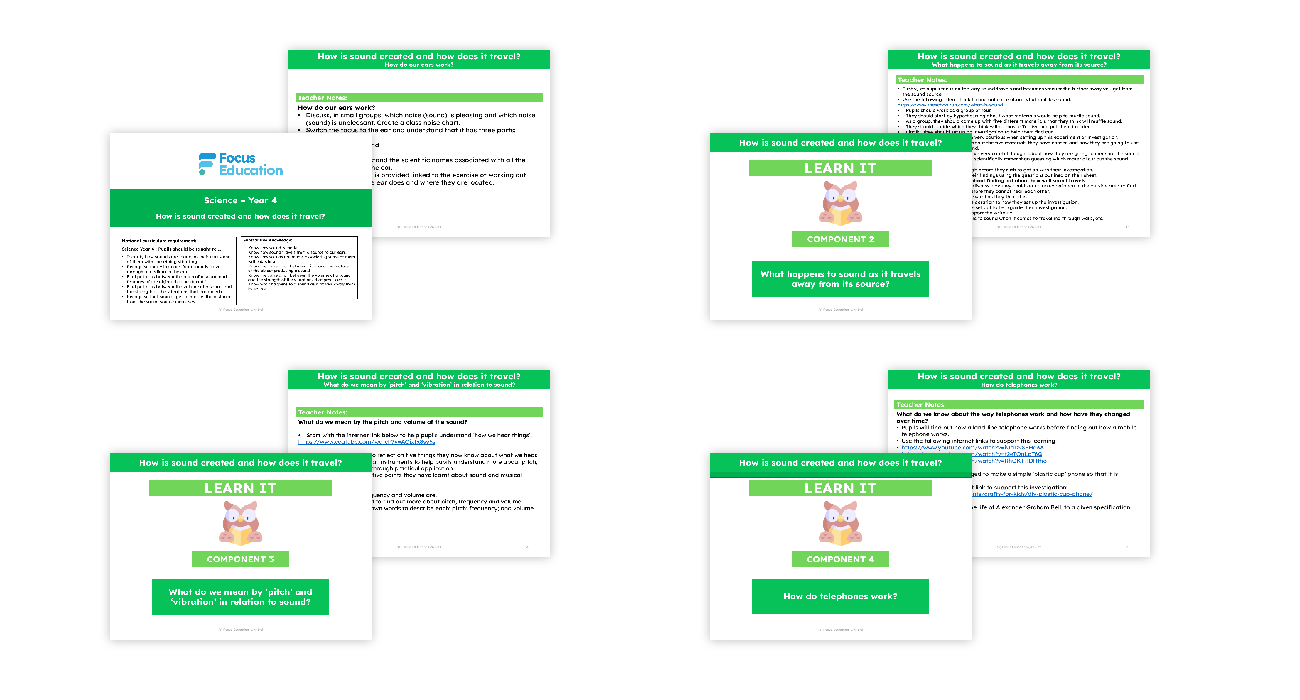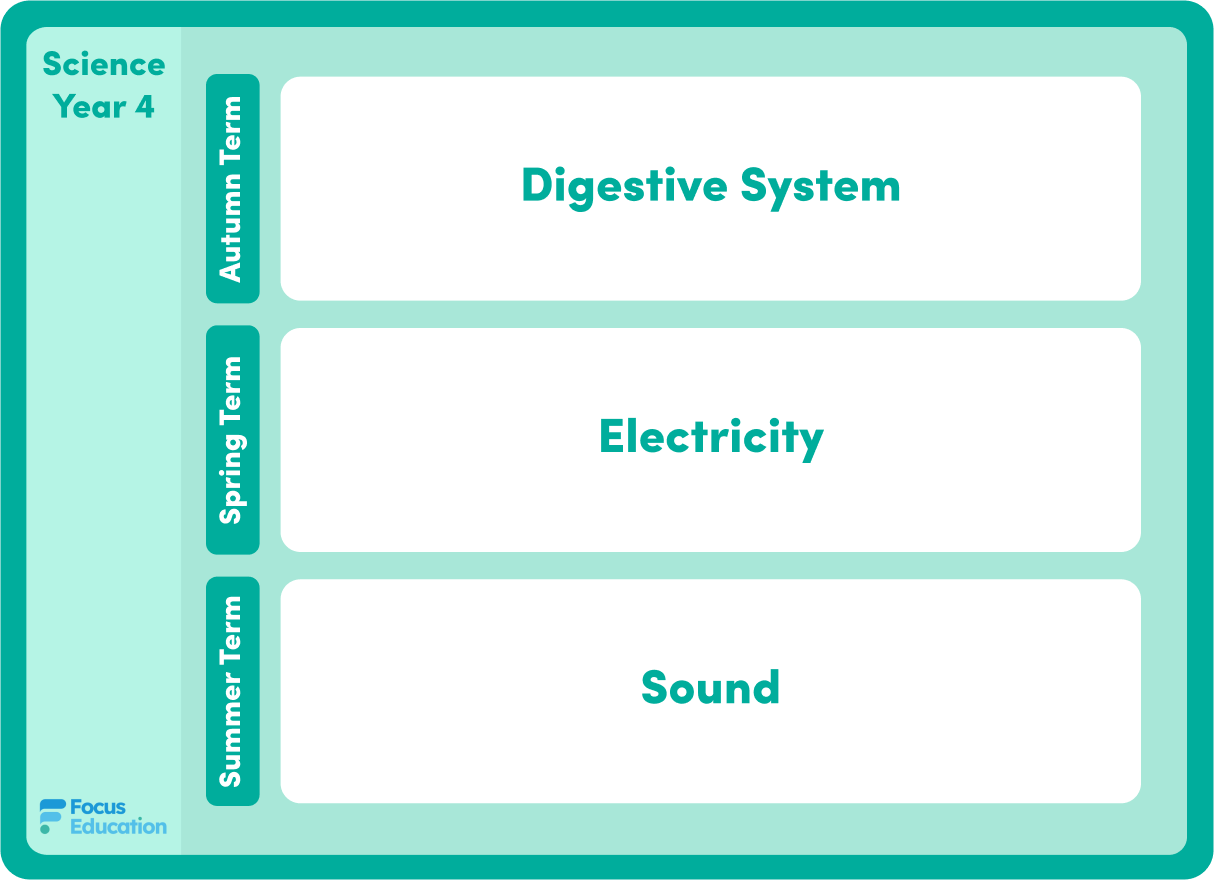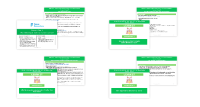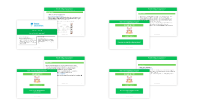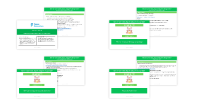Sound
Unit
Science
Year 4
Focus Education
Science Unit Description
Editable presentation
Group work
Active
Discussion based learning
Year 4 Science unit, Sound from Focus Education. This unit uses an enquiry-approach methodology, lessons are built around a central question in order to build pupil curiosity and motivate learning. Sound has been constructed in accordance with the National Curriculum.
Unit contents
Overview Documents
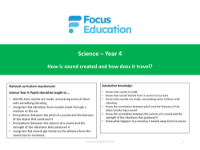
Long-term overview
Resource
Science
Y4
The Long-term overview for the unit Sound from Focus Education
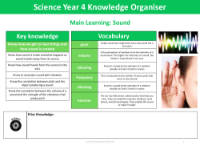
Knowledge organiser
Resource
Science
Y4
The Knowledge organiser for the unit Sound from Focus Education
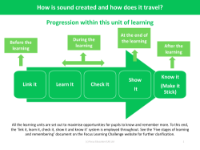
Progression pedagogy
Resource
Science
Y4
The Progression pedagogy for the unit Sound from Focus Education
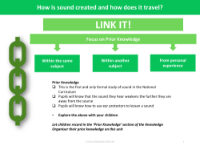
Link it! Prior knowledge
Resource
Science
Y4
Link it! Prior knowledge is the set of initial activities that should be used to introduce the unit Sound from Focus Education, it will allow pupils to link the upcoming learning to their existing skills and knowledge
Lessons
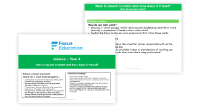
1. How do our ears work?
Lesson
Science
Y4
Year 4 Science lesson from the unit Sound. This lesson uses an enquiry-approach method, and will facilitate students answering the question 'How do our ears work?'
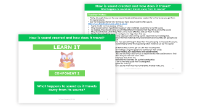
2. What happens to sound as it travels away from its source?
Lesson
Science
Y4
Year 4 Science lesson from the unit Sound. This lesson uses an enquiry-approach method, and will facilitate students answering the question 'What happens to sound as it travels away from its source?'
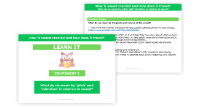
3. What do we mean by 'pitch' and 'vibration' in relation to sound?
Lesson
Science
Y4
Year 4 Science lesson from the unit Sound. This lesson uses an enquiry-approach method, and will facilitate students answering the question 'What do we mean by 'pitch' and 'vibration' in relation to sound?'
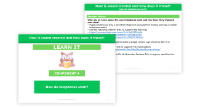
4. How do telephones work?
Lesson
Science
Y4
Year 4 Science lesson from the unit Sound. This lesson uses an enquiry-approach method, and will facilitate students answering the question 'How do telephones work?'
Assessment for Learning Resources
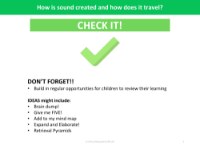
Check it!
Resource
Science
Y4
Check it! is a set of assessment for learning tasks and assessments that should be used to check pupils' understanding of the learning during the course of the unit Sound from Focus Education.
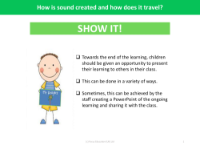
Show it! Group presentation
Resource
Science
Y4
Show it! Group presentation is a group task that should be used to solidify student learning and should be run after the teaching of the lessons contained in the unit Sound from Focus Education
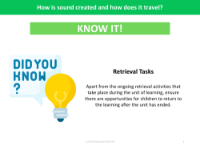
Know it!
Resource
Science
Y4
'Know it! - Year 4 - Sound' is a resource for assessing pupil knowledge at the end of the Year 4 unit, Sound
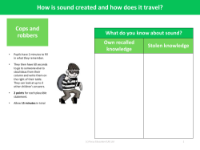
Cops and robbers - What do you know about sound?
Resource
Science
Y4
'Cops and robbers - What do you know about sound?' is a resource for assessing pupil knowledge at the end of the Year 4 unit, Sound
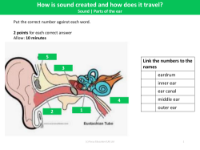
Picture match - Parts of the ear
Resource
Science
Y4
'Picture match - Parts of the ear' is a resource for assessing pupil knowledge at the end of the Year 4 unit, Sound
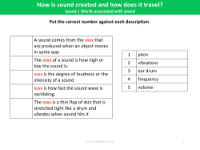
Match up - Sound
Resource
Science
Y4
'Match up - Sound' is a resource for assessing pupil knowledge at the end of the Year 4 unit, Sound
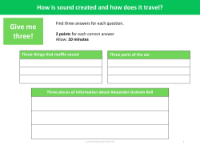
Give me 3 - Sound
Resource
Science
Y4
'Give me 3 - Sound' is a resource for assessing pupil knowledge at the end of the Year 4 unit, Sound
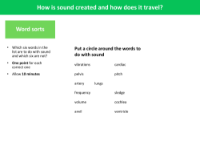
Word sorts - Sound
Resource
Science
Y4
'Word sorts - Sound' is a resource for assessing pupil knowledge at the end of the Year 4 unit, Sound
Unit contents
Overview Documents

Long-term overview
Resource
Science
Y4
The Long-term overview for the unit Sound from Focus Education

Knowledge organiser
Resource
Science
Y4
The Knowledge organiser for the unit Sound from Focus Education

Progression pedagogy
Resource
Science
Y4
The Progression pedagogy for the unit Sound from Focus Education

Link it! Prior knowledge
Resource
Science
Y4
Link it! Prior knowledge is the set of initial activities that should be used to introduce the unit Sound from Focus Education, it will allow pupils to link the upcoming learning to their existing skills and knowledge
Lessons

1. How do our ears work?
Lesson
Science
Y4
Year 4 Science lesson from the unit Sound. This lesson uses an enquiry-approach method, and will facilitate students answering the question 'How do our ears work?'

2. What happens to sound as it travels away from its source?
Lesson
Science
Y4
Year 4 Science lesson from the unit Sound. This lesson uses an enquiry-approach method, and will facilitate students answering the question 'What happens to sound as it travels away from its source?'

3. What do we mean by 'pitch' and 'vibration' in relation to sound?
Lesson
Science
Y4
Year 4 Science lesson from the unit Sound. This lesson uses an enquiry-approach method, and will facilitate students answering the question 'What do we mean by 'pitch' and 'vibration' in relation to sound?'

4. How do telephones work?
Lesson
Science
Y4
Year 4 Science lesson from the unit Sound. This lesson uses an enquiry-approach method, and will facilitate students answering the question 'How do telephones work?'
Assessment for Learning Resources

Check it!
Resource
Science
Y4
Check it! is a set of assessment for learning tasks and assessments that should be used to check pupils' understanding of the learning during the course of the unit Sound from Focus Education.

Show it! Group presentation
Resource
Science
Y4
Show it! Group presentation is a group task that should be used to solidify student learning and should be run after the teaching of the lessons contained in the unit Sound from Focus Education

Know it!
Resource
Science
Y4
'Know it! - Year 4 - Sound' is a resource for assessing pupil knowledge at the end of the Year 4 unit, Sound

Cops and robbers - What do you know about sound?
Resource
Science
Y4
'Cops and robbers - What do you know about sound?' is a resource for assessing pupil knowledge at the end of the Year 4 unit, Sound

Picture match - Parts of the ear
Resource
Science
Y4
'Picture match - Parts of the ear' is a resource for assessing pupil knowledge at the end of the Year 4 unit, Sound

Match up - Sound
Resource
Science
Y4
'Match up - Sound' is a resource for assessing pupil knowledge at the end of the Year 4 unit, Sound

Give me 3 - Sound
Resource
Science
Y4
'Give me 3 - Sound' is a resource for assessing pupil knowledge at the end of the Year 4 unit, Sound

Word sorts - Sound
Resource
Science
Y4
'Word sorts - Sound' is a resource for assessing pupil knowledge at the end of the Year 4 unit, Sound
Unlimited access to 30,000+ resources
All subjects
National Curriculum Coverage
Award-winning content
Explore other content in this scheme
Part of a scheme by Focus Education
Other units in this scheme
This website uses cookies to enhance the user experience.
To get more information about these cookies check our
Hey! It looks like you're in the United States.
Stay on the UK site
Switch to the US site

